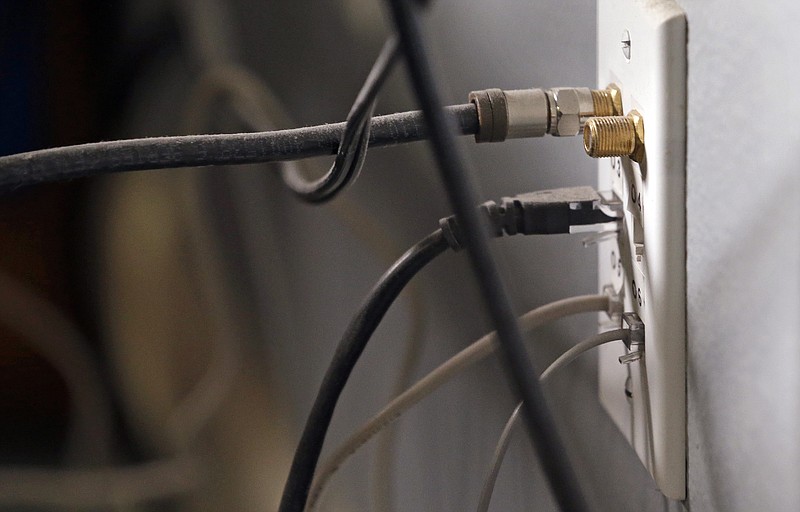Once again, the rural expansion of municipally owned broadband service is a hot topic in Nashville. Don't think it will be going away any time soon.
The conversation around the issue is messy, heated and (to conservative idealogues like me) captivating. Yes, captivating. Because boiled down to its truest essence, the debate is over the proper role of government. In this case, should the public sector compete head-to-head with the private sector?
Across most of Hamilton County that question has apparently been resolved, since city-owned EPB has squared off against the likes of Comcast and Charter Communications for years. Now, of course, Chattanooga's neighbors would love to tap into those famed "lightning fast" Internet and cable speeds.
But should they have access to them?
Perhaps the best place to start when pondering that is to ask another question: Is broadband a basic necessity?
One of the most popular statements made by pro-expansion advocates is that Internet access today is just as important as electricity was in the past. That's one heck of an overstatement, but hyperbole hasn't kept good folks from making the claim over and over and over. Perhaps the hope is that if the line is repeated enough it will somehow become true.
If you fall in the electricity = Internet camp, I've got a fun project for you. Step one: Turn off your home Internet today. Sure, it will introduce some inconveniences to your daily routine, but there's a good chance you'd be able to achieve most everything on your domestic to-do list. You'll still be able to watch television, do laundry, make dinner, listen to the radio and enjoy central heat. It'll be like 1994 all over again.
Step two: Turn your electricity off tomorrow evening. This should be fun since the temperature Saturday night is supposed to dip below 20 degrees. Bundle up, friends, and be sure to get your candles out. Unless you're hooked up to gas, you won't be able to stay warm, cook food or do anything but read.
Once you've completed this task, please take a moment to write down your experiences and then email me explaining how electricity and Internet are equal necessities. I look forward to those responses.
I'm not saying Internet access isn't a necessity. It is, but only to a degree -more of a necessary convenience, really - and it's nowhere close to being a basic necessity. This is a notable distinction because to appropriately discuss the possibility of broadband expansion, we have to properly assess its value. The inability to access food, clean water and electricity can mean the difference between life and death. Lack of Internet? Not so much. And lumping them all together skews the debate.
Calling private businesses "villains" and saying people are being "held hostage to their corporate model" contributes an unwarranted level of hysteria to the argument. Again, people won't start dying in the streets without broadband. With it, they will, however, be able to finish homework faster, communicate with clients easier and watch an uninterrupted Netflix stream.
Loads of people want access to better Internet - who can blame them? -and it's certainly worth discussing rural broadband expansion at the state level. Essential to that discussion, though, is an honest evaluation of what good it will accomplish.
Allowing a government entity to compete in the private market is no small thing. That's why deliberations on the matter must be sober and accurately framed. When it comes to broadband, making a clear line of distinction between demand and necessity is square one.
Contact David Allen Martin at davidallenmartin423@gmail.com and follow him on Twitter @DMart423.

